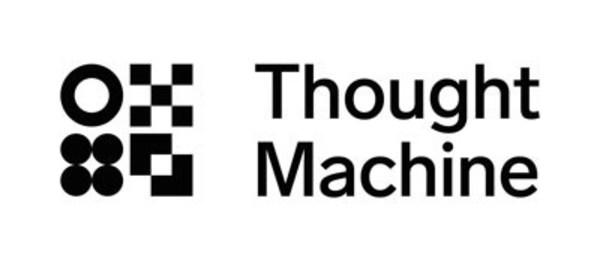Asia Pacific banks are ready to take advantage of truly digital cores - delivering competitive advantages beyond cost

New research from IDC and Thought Machine reveals Asia Pacific markets most ready for core banking transformation – outlined in new Digital Core Banking Opportunity Index
Truly digital cores will deliver numerous benefits for the region's banks,including agility,migration and cost
SINGAPORE and LONDON,March 24,2021 -- Thought Machine,the cloud native technology company with its APAC headquarters in Singapore,and International Data Corporation (IDC),have released their second piece of joint research entitled Truly Digital Core Banking: You Are More Ready Than You Think.
In this new piece of research,IDC outlines Asia Pacific's readiness for banking transformation and a clear path for banks in the region to adopt modern core technology and deliver truly digital banking experiences.
IDC's new proprietary index,the Digital Core Banking Opportunity Index,maps regional markets according to two dimensions: opportunity-to-benefit and execution readiness. Within the opportunity-to-benefit dimension,markets have been measured on customer readiness for digital banking and market infrastructure. In the execution readiness dimension,markets have been measured on their propensity towards changing legacy systems and the maturity of their market infrastructure.
The markets measured in the index are: Australia,Indonesia,Hong Kong,Malaysia,New Zealand,Philippines,Singapore,Thailand and Vietnam. Findings from the index show that:
Singapore and Australia hold the largest opportunity for digital core banking,with the remaining markets ready for digital transformation.
Some of the oldest core systems are in the Philippines and Malaysia,whereas Vietnam has relatively newer core systems.
The majority of Asia Pacific markets measured are contained within the 'Market Acceleration' segment: primed to take full advantage of digital core offerings
Indonesia and Thailand have a strong propensity to change their core bank systems,while Malaysia and Philippines have been slow to migrate to a digital core.
The paper also details the reinforcing nature of digital core banking technology – how modern software architecture increases bank delivery capability,and the ability to continuously innovate. This,in effect,accelerates a bank's overall readiness to execute on full digital transformation.
In the latter half of the paper,IDC has detailed the exact requirements for a modern digital core – outlining 25 distinct attributes the system should possess,including on-demand analytics,intelligent configuration,flexible licensing,cost reduction and more.
Michael Araneta,Head of Advisory and Research,IDC Financial Insights,said: "IDC has examined the new wave of investments into digital core banking systems in the Asia Pacific region and can now reveal that banks are primed to benefit from the capabilities of a new generation of core banking systems. They can finally be more efficient,more customer-centric,and more agile. No market in the region,and no bank for that matter,should wait for the 'right time down the road'. The time is now."
Nick Wilde,Managing Director APac,Thought Machine,said: "Asia's markets are now able to take advantage of the efficiencies of cloud-native architecture,an API-driven framework and low-code enhancement capabilities that are inherent in truly digital core systems. The intersection point has arrived – Asia's markets are ready to execute,and capture material benefits by migrating to a truly digital core."
The paper explores Thought Machine's core banking engine,Vault,in the context of these attributes. An assessment of low-code and no-code development paradigms reveals that Vault's low-code approach unlocks multiple benefits for banks wishing to be agile in fast-changing environments. Vault's API-driven,real-time approach,has also been highlighted for its ability to streamline integration with other systems,connect with Open Banking programs,and allows banks to take advantage of new digital channels.
The paper closes with an assessment of the migration approaches available for legacy banks when adopting modern digital core banking systems. Vault is highlighted for its ability to cater to multiple types of migration: reducing the complexity,risk and cost involved in the process.
About Thought Machine
Thought Machine was founded in 2014 with a mission to enable banks to deploy modern systems and move away from the legacy IT platforms that plague the banking industry. We do this through our cloud native core banking platform,Vault. This next generation system has been written from scratch as an entirely cloud native platform. It does not contain a single line of code which is legacy,or pre-cloud.
Founded by entrepreneur Paul Taylor,Thought Machine's customers include Lloyds Banking Group,SEB,Standard Chartered,Atom bank,Monese,TransferGo and Curve. We are currently a team of more than 450 people spread across offices in London,Sydney,Melbourne,New York and have raised more than £110m in funding from Eurazeo,Draper Esprit,British Patient Capital,IQ Capital,Playfair Capital,Nyca Partners,Lloyds Banking Group and Backed.
For more information visit thoughtmachine.net
About IDC
International Data Corporation (IDC) is the premier global provider of market intelligence,advisory services,and events for the information technology,telecommunications,and consumer technology markets. With more than 1,100 analysts worldwide,IDC offers global,regional,and local expertise on technology and industry opportunities and trends in over 110 countries. IDC's analysis and insight helps IT professionals,business executives,and the investment community to make fact-based technology decisions and to achieve their key business objectives. Founded in 1964,IDC is a wholly-owned subsidiary of International Data Group (IDG),the world's leading tech media,data and marketing services company. To learn more about IDC,please visit www.idc.com. Follow IDC on Twitter at @IDC and LinkedIn. Subscribe to the IDC Blog for industry news and insights: http://bit.ly/IDCBlog_Subscribe.